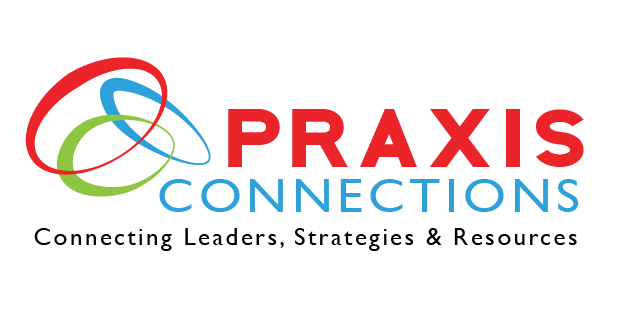Book reviews: Strategies, Theology, & Theories of Change
Friends:
How does change happen? In our lives, neighborhoods, society, or organizations? Why is it so difficult? Especially when on some issues like poverty or education, a majority of people would agree that we should change things to reduce poverty or increase educational outcomes. If you’re in ministry or social services you are committed to change. Donors give to create impact & change! I believe that change is possible. I just celebrated my 39th year of faith & sobriety so I know change is possible. God has allowed me to be a part of changes in lives & systems. The Gospel is all about being transformed by the renewal of our minds! The prophets called for personal & social change. Rebuilding the walls in Nehemiah is community change. Motivated and rooted combined with strategy can lead to change. Unconditional love no matter what the response. Ministry is not all about change but rather our love of God & neighbor. Here are some books I’ve read thus far in 2018 that I think will help us to understand & facilitate change.
In Leslie R. Crutchfield’s (author of Forces for Good) recent book How Change Happens: Why Some Social Movements Succeed While Others Don’t
Change requires humility, poverty of spirit, and mercy. Jacques Philippe provides a meditation on the Beatitudes to help us grow in these areas in his wonderfully written book The Eight Doors of the Kingdom. It’s the best thing I’ve read on the Beatitudes. The Beatitudes reorient our view & relationship with God, ourselves and our neighbor. Using the Beatitudes & the lives of Moses & Jesus, he delves into the meaning of the Beatitudes in Matthew. He says that they describe the heart of Christ. There is not a wasted word in this short but powerful book. It calls us to not treat people in a mercantile way. A mercantile approach demands a certain response that is owed rather than something freely given. It calls us to avoid a quid pro quo way of treating each other. Especially the idea that we are owed something on the basis of the good we do. Humble & loving hearts require us to be changed if we are going to effectively be agents of God’s love and transformation. A must-read for those who seek to grow.
Father Gregory Boyle’s book, Barking to the Choir: The Power of Radical Kinship, describes a ministry of love, mercy, and humility that has demonstrated results. This is a moving book that will make you laugh & cry at the struggle they experience in their desire to draw closer to God & become more whole in their lives. He shares stories of a trauma-informed ministry rooted in love & mercy where brokenness is embraced and transformed. Neighborhood-based & grassroots informed to ministry that incorporates brings love to the proximity of the margins. Anyone who is engaged in ministry would do themselves a favor in reading this book. It shows how change happens in the messiness of peoples lives. Powerful.
One of the reasons change does not happen is that we have the wrong posture, approach, solution, or theology. Our nation’s race problems are rooted in unresolved & the unfinished business of reconstruction according to Jonathan Wilson-Hartgrove in his powerfully written Reconstructing The Gospel: Finding Freedom from Slaveholder Religion. In it, he intertwines his own story as a white southerner with that of our country and segments of the church which has too often used religion to support white supremacy. He describes how reconstruction was interrupted and has affected our country, church, and race relations ever since. He provides a look into an ugly part of our history and how the church has been too often complicit in the evils of racism. It’s a sad history. He describes that the counter movement to reconstruction at the time was a group called Redeemers who succeeded in overturning Reconstruction through engaging in terror. Burning down black churches. On Easter no less. This evolved into the KKK. Moving from past history to current practices he shows how tainted the church has become to a blindness that needs to be healed. He provides a great way forward for us to Reconstruct the Gospel from a misappropriated theology. For those who might think oh here is an angry book you will not find that here. He shares his story and the complexities of his family and the culture he lives in.
During February I decided to reread Dr. King’s Where Do We Go From Here: Chaos or Community? If you have not read this I recommend that you do. He was brilliant. Society has reduced him to a speech. Well in this book you get a look inside his mind where he describes his theology & methodology for change. He also describes some of the internal disagreements within the Civil Rights movement. Yes not everyone agreed with him! One of the things that surprised me is how relevant this book is for today. Part of his strategy is how to change hearts to change policy & practice. It’s a classic for more than the fact that he wrote it. It’s powerful!
Tribalism is one of the chief obstacles to change. Groups pitted against each other. Amy Chua’s Political Tribes: Group Instinct and the Fate of Nations provides some insight into the dynamics of a group who feels aggrieved. One of the things that surprised me was that the aggrieved are often a majority group who feels threatened by a minority group. Or a new group. Sound familiar. A powerful look into these dynamics. The chapters on America are very helpful. Great read.
The Color of Law: A Forgotten History of How Our Government Segregated America by Richard Rothstein, Not A Crime to Be Poor by Peter Edelman, and A Covenant with Color: Race and Social Power in Brooklyn by Craig Steven Wilder are each extremely well-written accounts of how our past & current actions as a society produced the reality we now live. Each provides an eye-opening account of our history that is not pretty. They uncover things that many would not want to admit. Rothstein provides a lawyer’s approach as he provides evidence for how our government segregated America. From President Wilson, he describes how our government engaged in segregation that thwarted nonwhite people. Yes FDR was a big perpetrator of these policies. Craig Steven Wilder-Smith provides a racial history of Brooklyn from 1636-1990 describing slavery in Brooklyn (Some of its streets are named after slaveholder families), the KKK in New York, the churches complicity, the strength of the black church, Underground railroad, voter suppression, and preventing blacks from union jobs, and accessing educational opportunity. I learned a lot about the history of NYC. I highly recommend it to you! Not a Crime to Be Poor is an important read for anyone interested in justice. It shows how there is a war being waged on the poor. Edelman outlines policies to improve a system that punishes the poor that deepens poverty and hopelessness. As James Baldwin said, “Not Everything That is faced Can Be Changed, But Nothing Can Be Changed Until It is Faced”. These books help us face the things that need to be changed.
Finally, I want to recommend the short Peter Drucker book Managing Oneself. It’s one of those books I will I read 25 years ago. Short. Not a wasted word. Powerful.
Let’s begin our efforts of change by loving our neighbor! Blessing on you as you read some of these great books!
Chris Troy












